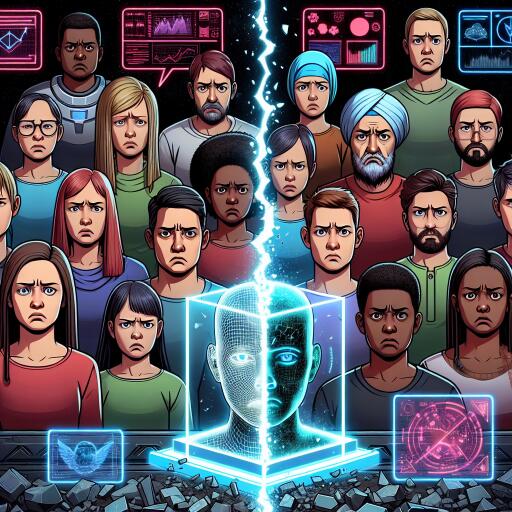Stellaris Players Aren’t Happy With Paradox’s Use Of Generative AI In New DLC
The gaming community is abuzz as Stellaris, the grand strategy game set in space, has introduced its latest DLC, The Machine Age. This new addition to the game’s expansive universe promised to bring a wealth of fresh content—ranging from daunting endgame crises to intriguing new origins. For many, it was quick to be heralded as potentially the finest DLC Stellaris has seen yet. However, excitement turned into controversy when Paradox Interactive, the game’s developer, disclosed its employment of AI-generated content within the DLC, leaving parts of the community in dismay.
Following the revelation, a wave of negative reviews began flooding the DLC’s Steam page. Many players felt betrayed by Paradox’s decision to utilize generative AI, leading to a significant drop in approval ratings. The official game store page includes a disclaimer about the AI utilization, noting, “We employ generative AI technologies during the creation of some assets. Typically this involves the ideation of content and visual reference material.” It further clarifies that such AI-generated elements play a minor role in the overall development process, including the generation of voices for an AI antagonist and a player advisor.
The response from the Stellaris community has predominantly skewed negative, with some members expressing strong disapproval on various platforms, including over 100 negative reviews posted on May 10th alone. Critics argue that the use of AI is a tactic to “minimize costs and maximize profits,” expressing concerns over the increasing trend of locking significant game content behind paid DLCs. One review starkly criticized Paradox, stating, “Will spread the word to detour others from spending money on Paradox games.”
Yet, amidst the backlash, there are voices within the community labeling the outcry as “silly,” and some players who seem unfazed by the company’s technological approach. In defense of their use of AI, a Paradox employee engaged with the community on Reddit, attempting to provide some clarity and reassurance. The employee emphasized the ethical considerations behind their AI usage, particularly highlighting how voice actors involved in building AI models receive royalties for every generated line. “Ethical use of AI technology is very important to us – we’re pretty good at exploring dystopian sci-fi and don’t want to end up there ourselves,” the representative commented.
This Paradox staff member also clarified that AI was not utilized for the DLC’s concept art, though admitted that a few AI-generated pieces might have been included in the visual development and mood exploration boards. Promising a forthcoming dev diary, they aim to offer a comprehensive breakdown on how and why AI tools were utilized for The Machine Age DLC, hoping to appease concerns within the community.
As the dust settles on this emerging debate within the Stellaris fandom, it reflects broader discussions around the role of AI in game development and the creative industries at large. The balancing act between innovation, ethical considerations, and community expectations continues to be a challenging terrain for developers navigating the digital age. With Paradox Interactive at the forefront of this conversation, the outcome of this situation might set precedence for future endeavors in the gaming world.
Stellaris itself has been a hallmark title for Paradox Development Studio since its release on May 9, 2016. As the game continues to evolve with new content and technological advancements, it serves as a petri dish for the industry’s growing pains and triumphs. Meanwhile, the gaming community watches with bated breath, hoping their beloved titles can grow without losing the essence of what made them special in the first place.
For enthusiasts and critics alike, this episode serves as a reminder of the evolving relationship between technology and artistic creation, a debate that, much like the universe of Stellaris, seems infinite.










